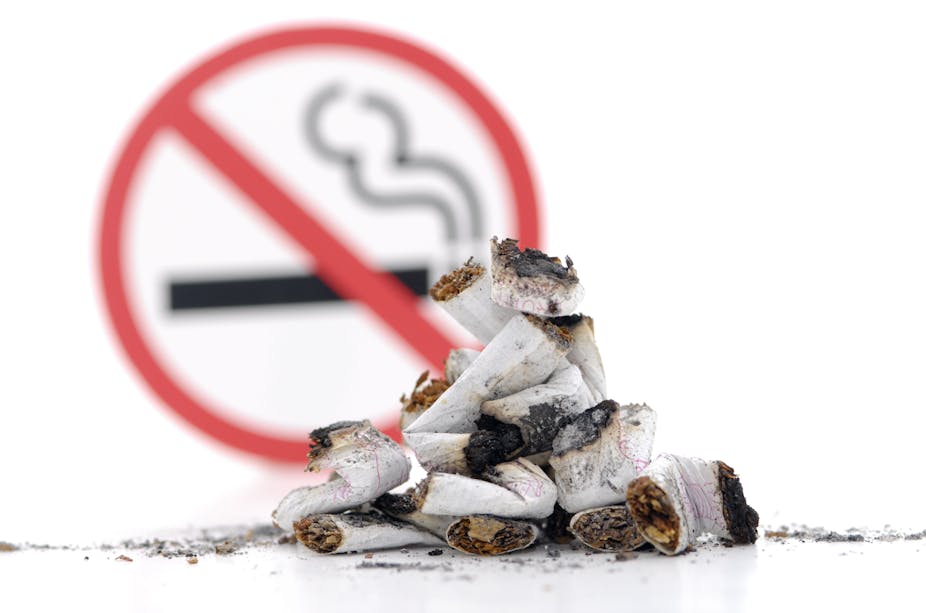The 2020 World No Tobacco Day is unique and historic as it comes at the time when countries across the world are on lockdown due to the COVID-19 pandemic.
For Botswana the day is particularly poignant. The country has banned imports and sales of tobacco or tobacco-related products along with other emergency regulations during the country’s declared six-month state of public emergency.
To the best of my knowledge Botswana and neighbouring South Africa are the only countries to have done so. Governments in both countries have faced a massive backlash, with smokers expressing their unhappiness. The prohibition and the response have attracted global headlines.
The motivation to ban the sales of tobacco and tobacco related products in Botswana was informed by scientific evidence that smoking damages human lungs and other body organs. As COVID-19 is primarily a disease affecting the respiratory system, smokers are therefore more vulnerable.
Another motivation has been the actions of tobacco companies. In recent months, the industry has stooped to new lows to target youth by exploiting the pandemic to sell more products. In more than 28 countries, tobacco and e-cigarette companies have used social media and other marketing tactics to launch pandemic-themed promotions, undermine minimum age purchase restrictions meant to protect youth and make unproven and illegal health claims.
Botswana has a very high smoking rate of 18% – 27% of males and 9% of females currently use tobacco. This is similar to South Africa, where the national smoking prevalence is about 18%: 29% of males and 6.8% of females.
These figures are higher than the rest of the continent, where about 14% of men and 2% of women smoke. According to the estimates by the World Health Organisation (WHO), Africa is one of two regions – along with the Eastern Mediterranean region – where smoking rates are on the rise.
At a time when COVID-19 is gripping the world, the pandemic should encourage countries to kickstart programmes and policies that encourage smokers to quit. The justifications behind the bans should be used in other countries to encourage smokers to quit. Along with the measures to ban tobacco imports and sales, governments have the opportunity to provide smokers with treatments to help them.
The evidence
On account of the devastating impact of smoking on COVID-19, the WHO has put out a scientific brief based on a review of 32 studies. It notes that
smoking is associated with increased severity of disease and death in hospitalised COVID-19 patients.
The WHO’s recommendation based on the review is that given the well-established harm associated with tobacco use and second-hand smoke exposure, “tobacco users stop using tobacco”.
Botswana needs to jump on to this opportunity. Never before have smokers had this kind of opportunity to quit. The government must facilitate quitting by providing smoking cessation programmes.
The WHO advises governments to support users wanting to quit. Interventions it recommends include toll-free quit lines, mobile text-messaging cessation programmes, nicotine replacement therapies and other approved medications.
Countries should take their lead from the global health body. The ban on the sale of tobacco products and any calls by governments for smokers to quit during the COVID-19 pandemic need to be accompanied by initiatives that aid smokers in this course of action.
Additionally, and in line with the ideals of the 2020 World No Tobacco Day, the government of Botswana must strictly enforce the provisions of its Control of Smoking Act. Section 13 of the act bans the advertisement of tobacco products by the tobacco industry.
Recently there has been an upsurge in advertisements, especially banners posted by tobacco companies or individuals that boldly advertise and promote tobacco products in the face of COVID-19. These actions disregard existing law prohibiting the advertising and promotion of tobacco products in Botswana.
A survey done in South Africa of how smokers are coping with the ban on cigarette sales during lockdown confirms how difficult it is for smokers once they are caught in addiction. Governments should recognise this and accept that smokers need help to quit. This should includes counselling and nicotine replacement therapies.
Such strategies will counter the tobacco industry’s strategies to negate government tobacco control efforts.

